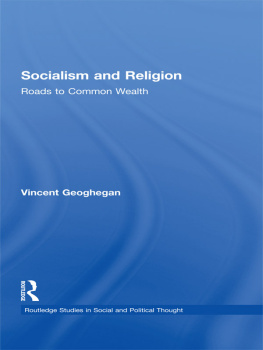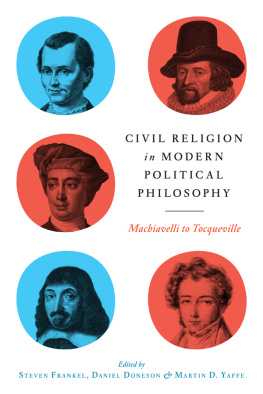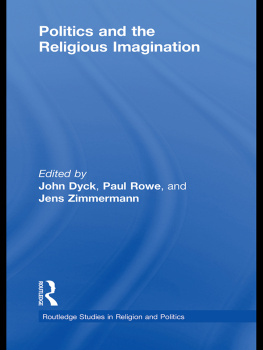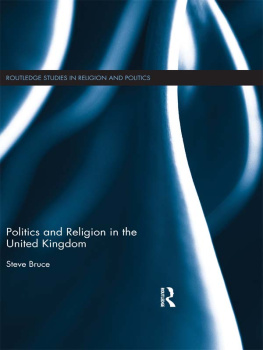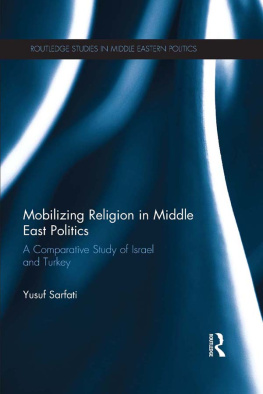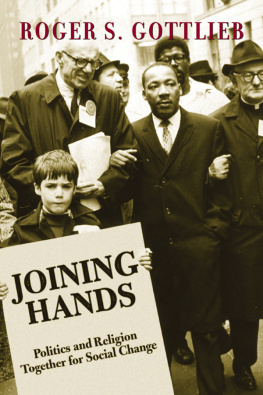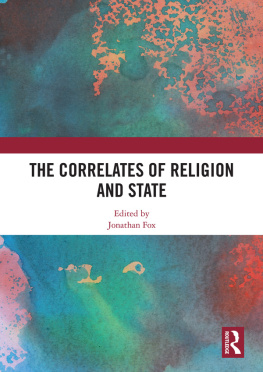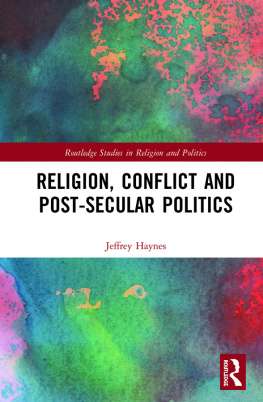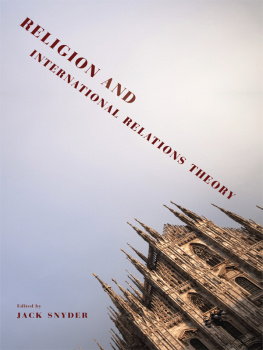Socialism and Religion
There is much talk of the return of religion these days. This is frequently conceptualised in terms of post-secularism, a perceived move away from what Richard Rorty has described as (and as a resolute secularist defended) the compromise that the Enlightenment reached with the religious, namely that religion be confined to the private sphere and that public discourse be grounded on the basis of a common rationality shorn of the metaphysical and ethical particularities of religious doctrine.
Thinkers as varied as Jrgen Habermas and Charles Taylor have argued that a necessary defence of the achievements of secular modernity needs to be combined with a recognition of the fundamental value of religious traditions, and of their legitimate place in public life. The global resurgence of a new religious politics graphically symbolised by 9/11 has added a new urgency to this project; how is religion to be integrated, and if necessary contested, in such a time? As this study shows, the desire to integrate religion into a progressive politics, or even to make it the very basis of such a politics, is not new; Geoghegan argues that ideas and practices generated in these earlier moments have an inherent interest, and even a degree of relevancy to contemporary concerns about the nature and scope of religion.
Providing a comprehensive analysis of the Common Wealth movement, this work seeks to bring together for the first time the religious and political commitments of four of the leading thinkers in the movement, bringing to light the significance of the relationships between them.
Vincent Geoghegan is Professor of Political Theory at Queens University Belfast.
Routledge Studies in Social and Political Thought
1. Hayek and After
Hayekian Liberalism as a Research Programme
Jeremy Shearmur
2. Conflicts in Social Science
Edited by Anton van Harskamp
3. Political Thought of Andr Gorz
Adrian Little
4. Corruption, Capitalism and Democracy
John Girling
5. Freedom and Culture in Western Society
Hans Blokland
6. Freedom in Economics
New Perspectives in Normative Analysis
Edited by Jean-Franois Laslier, Marc Fleurbaey, Nicolas Gravel and Alain Trannoy
7. Against Politics
On Government, Anarchy and Order
Anthony de Jasay
8. Max Weber and Michel Foucault
Parallel Life Works
Arpad Szakolczai
9. The Political Economy of Civil Society and Human Rights
G.B. Madison
10. On Durkheims Elementary Forms of Religious Life
Edited by W.S.F. Pickering, W. Watts Miller and N.J. Allen
11. Classical Individualism
The Supreme Importance of Each Human Being
Tibor R. Machan
12. The Age of Reasons
Quixotism, Sentimentalism and Political Economy in Eighteenth-Century Britain
Wendy Motooka
13. Individualism in Modern Thought
From Adam Smith to Hayek
Lorenzo Infantino
14. Property and Power in Social Theory
A Study in Intellectual Rivalry
Dick Pels
15. Wittgenstein and the Idea of a Critical Social Theory
A Critique of Giddens, Habermas and Bhaskar
Nigel Pleasants
16. Marxism and Human Nature
Sean Sayers
17. Goffman and Social Organization
Studies in a Sociological Legacy
Edited by Greg Smith
18. Situating Hayek
Phenomenology and the Neo-liberal Project
Mark J. Smith
19. The Reading of Theoretical Texts
Peter Ekegren
20. The Nature of Capital
Marx after Foucault
Richard Marsden
21. The Age of Chance
Gambling in Western Culture
Gerda Reith
22. Reflexive Historical Sociology
Arpad Szakolczai
23. Durkheim and Representations
Edited by W.S.F. Pickering
24. The Social and Political Thought of Noam Chomsky
Alison Edgley
25. Hayeks Liberalism and Its Origins
His Idea of Spontaneous Order and the Scottish Enlightenment
Christina Petsoulas
26. Metaphor and the Dynamics of Knowledge
Sabine Maasen and Peter Weingart
27. Living with Markets
Jeremy Shearmur
28. Durkheims Suicide
A Century of Research and Debate
Edited by W.S.F. Pickering and Geoffrey Walford
29. Post-Marxism
An Intellectual History
Stuart Sim
30. The Intellectual as Stranger
Studies in Spokespersonship
Dick Pels
31. Hermeneutic Dialogue and Social Science
A Critique of Gadamer and Habermas
Austin Harrington
32. Methodological Individualism
Background, History and Meaning
Lars Udehn
33. John Stuart Mill and Freedom of Expression
The Genesis of a Theory
K.C. ORourke
34. The Politics of Atrocity and Reconciliation
From Terror to Trauma
Michael Humphrey
35. Marx and Wittgenstein
Knowledge, Morality, Politics
Edited by Gavin Kitching and Nigel Pleasants
36. The Genesis of Modernity
Arpad Szakolczai
37. Ignorance and Liberty
Lorenzo Infantino
38. Deleuze, Marx and Politics
Nicholas Thoburn
39. The Structure of Social Theory
Anthony King
40. Adorno, Habermas and the Search for a Rational Society
Deborah Cook
41. Tocquevilles Moral and Political Thought
New Liberalism
M.R.R. Ossewaarde
42. Adam Smiths Political Philosophy
The Invisible Hand and Spontaneous Order
Craig Smith
43. Social and Political Ideas of Mahatma Gandhi
Bidyut Chakrabarty
44. Counter-Enlightenments
From the Eighteenth Century to the Present
Graeme Garrard
45. The Social and Political Thought of George Orwell
A Reassessment
Stephen Ingle
46. Habermas
Rescuing the Public Sphere
Pauline Johnson
47. The Politics and Philosophy of Michael Oakeshott
Stuart Isaacs
48. Pareto and Political Theory
Joseph Femia
49. German Political Philosophy
The Metaphysics of Law
Chris Thornhill
50. The Sociology of Elites
Michael Hartmann
51. Deconstructing Habermas
Lasse Thomassen
52. Young Citizens and New Media
Learning for Democratic Participation
Edited by Peter Dahlgren
53. Gambling, Freedom and Democracy
Peter J. Adams
54. The Quest for Jewish Assimilation in Modern Social Science
Amos Morris-Reich
55. Frankfurt School Perspectives on Globalization, Democracy, and the Law
William E. Scheuerman
56. Hegemony
Studies in Consensus and Coercion
Edited by Richard Howson and Kylie Smith
57. Governmentality, Biopower, and Everyday Life
Majia Holmer Nadesan
58. Sustainability and Security within Liberal Societies
Learning to Live with the Future
Edited by Stephen Gough and Andrew Stables

